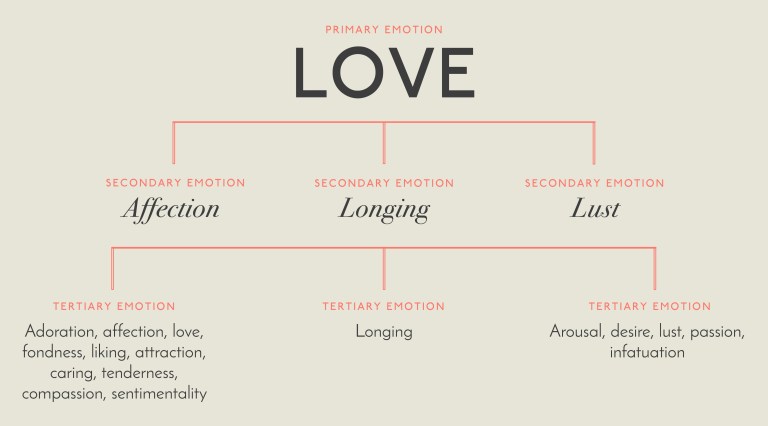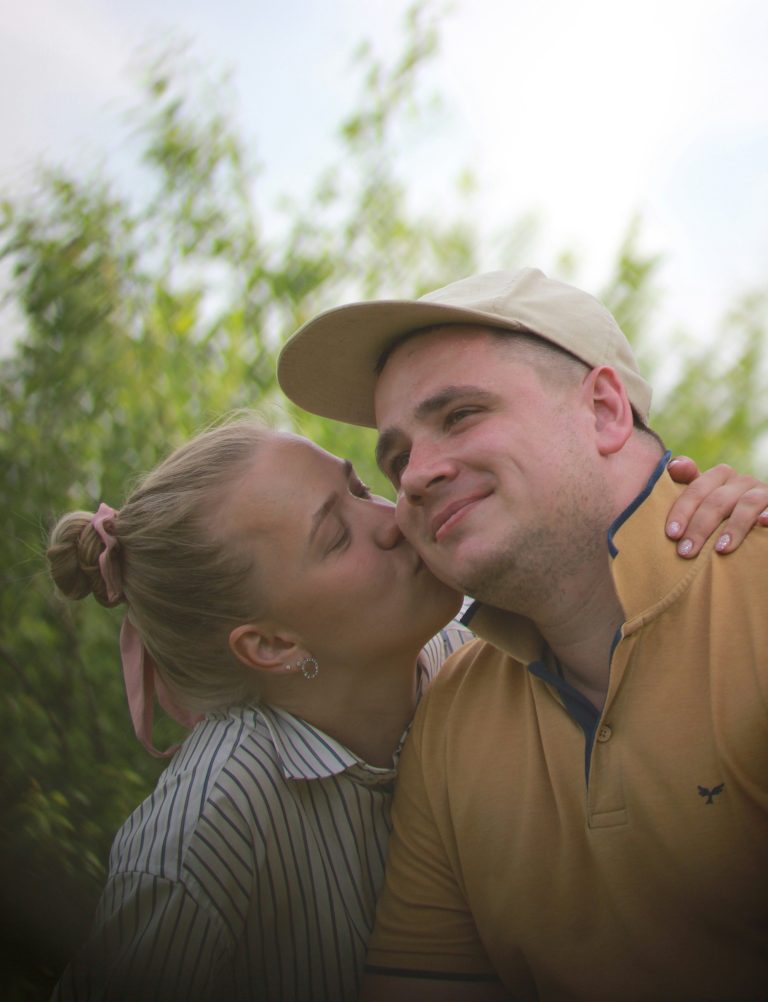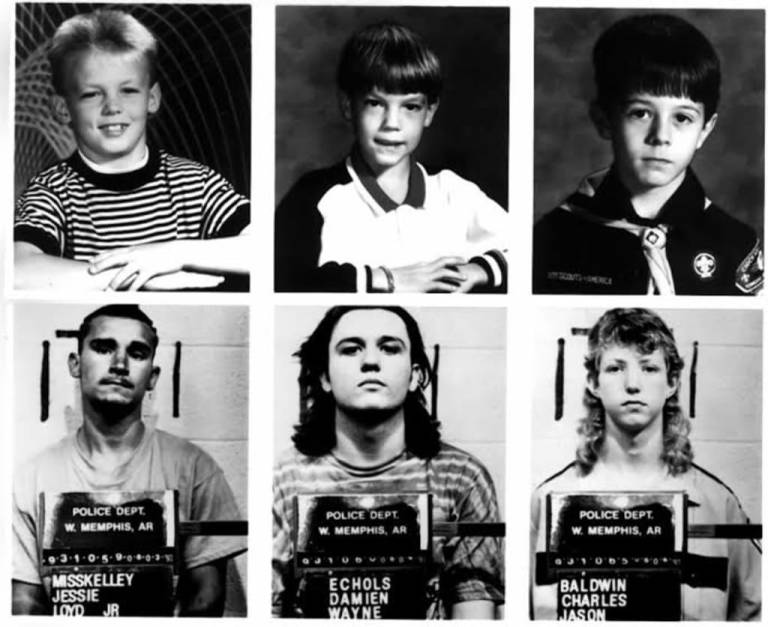
A List Of Emotions And Facial Expressions
Test subjects had to define the emotional states they saw in each photo, based on a predetermined list of emotions they had seen prior. Expressions he found to be universal included those indicating happiness, disgust, anger, sadness, surprise and fear.
The Six Basic Emotions and Expressions
Charles Darwin wrote in his 1872 book, The Expression of the Emotions in Man and Animals that “facial expressions of emotion are universal, not learned differently in each culture.” There have been arguments both in favor and against ever since.
The most notable research into the topic came from psychologist Paul Ekman, who pioneered research into emotion recognition in the 1960s. His team of researchers provided their test subjects with photos of faces showing different emotional responses. The test subjects then had to define the emotional states they saw in each photo, based on a predetermined list of emotions they had seen prior.
Through these studies, Ekman found a high agreement across members of Western and Eastern cultures when it came to selecting emotional labels that corresponded with facial expressions.
Expressions he found to be universal included those indicating happiness, disgust, anger, sadness, surprise and fear. Working with his long-time friend Wallace V. Friesen, Ekman found that the findings of the study correlated with Fore tribesmen in Papua New Guinea, whose members could not have learned the meaning of expressions from exposure to media. Instead, they inherently displayed the expressions without ever having been primed for them, leading Ekman and Friesen to determine that they were universal.
From this study, the six basic emotions were proposed. However, some people believe there are eight basic emotions. These core emotions are joy, sadness, anger, fear, trust, distrust, surprise, anticipation.
1. Facial Expression/Emotion: Happy
Happiness is an emotion that is often associated with a good state of mental health that reflects contentment, satisfaction, pleasure or joy. Happiness is one of the most popular positive emotions, and it has been studied throughout different philosophical, religious, and biological approaches.
Happiness is characterized by a facial expression that causes someone to raise the corners of their mouth upwards.
2. Facial Expression/Emotion: Disgust
Disgust is an emotion that is often associated with things that are unsanitary, inedible, infectious, or offending. For example, someone might be offended by some hurtful things you have said, or they might be disgusted by your behavior.
Disgust is characterized by a facial expression that causes someone to raise their upper lip, wrinkle their nose bridge, and raise their cheeks. Surprisingly, however, disgust is one of the 6 emotions that decreases heart rate.
3. Facial Expression/Emotion: Anger
Anger is an emotion that is often associated within the range of minor irritation to intense rage. Physically, anger causes someone to experience an increased heart rate, heightened blood pressure, and abnormal levels of adrenaline and noradrenaline.
Anger is characterized by a facial expression that causes someone to lower their brows, press their lips together firmly, and bulge their eyes.
4. Facial Expression/Emotion: Fear
Fear is an emotion that is often associated with a threatening or dangerous stimuli. It is a basic survival mechanism that occurs in response to a traumatic presence, such as a pain or the impending threat of pain.
When experiencing fear, body language includes raising their brows, opening their mouth slightly, and opening their eyes in a manner that is wider than normal.
5. Facial Expression/Emotion: Surprise
Surprise is an emotion that is often associated with a brief state of being. This brief state of being is invoked by an unexpected, relevant event. However, surprise isn’t always a traumatic emotional experience.
Surprise has also been categorized into being valent, which means that it spans the spectrum of being neutral, pleasant, and unpleasant. Surprise is characterized by a facial expression that causes someone to arch their brows, open their eyes widely, and drop their jaw.
6. Facial Expression/Emotion: Sadness
Sadness is an emotion that is often associated with the feelings of disadvantage, loss, and helplessness. Often, humans react to being sad by getting quiet, and they experience a lack of energy and a need to be withdrawn.
Sadness is characterized by a facial expression that causes someone to lower the corners of their mouth, and raise the inner portion of their brows.
Building New Emotion Based Theories
However, what about the other emotions we feel, such as guilt, jealousy, pride, shame and so forth? While we genuinely feel these as emotions, we do not tend to show clear and obvious expressions in relation to them. We are easily able to hide these emotions from those around us, but they still exist. If an emotion does not have a universally known facial expression, does that mean that it is not a basic feeling most of us feel? Or do we need to dig deeper into the basic human emotions in order to understand them?
Robert Plutchik’s Wheel Based Theory
Robert Plutchik, a professor at the University of South Florida, agreed with Paul Ekman’s research driven perspective but developed his own model, called the “wheel of emotions.”
Plutchik’s Wheel of Emotions is similar to a colour wheel. Like colours, primary emotions can be expressed at different intensities and can mix with one another to form different emotions. The intensity of the emotion increases as you move towards the wheel’s centre and decreases as you move outward; the darker the shade, the more intense the emotion.
Plutchik’s eight primary emotions are Joy, Trust, Fear, Surprise, Sadness, Anticipation, Anger, and Disgust. Each primary emotion has a polar opposite, so that:
- Joy is the opposite of Sadness
- Fear is the opposite of Anger
- Anticipation is the opposite of Surprise
- Disgust is the opposite of Trust
Plutchik’s wheel also contains combination emotions, which are combinations of primary emotions that lie next to each other on the Wheel of Emotions. These combination emotions can be primary dyads (often felt), secondary dyads (sometimes felt) and tertiary dyads (seldom felt).
- Anger + Anticipation = Aggressiveness
- Anticipation + Joy = Optimism
- Joy + Trust = Love
- Trust + Fear = Submission
Parrott’s Tree-Structured Theory
Another theory that has gained notoriety is Parrott’s tree-structured approach to human emotions and their layers. In his 2001 study, Emotions in Social Psychology, Parrott proposed that theories of emotion have been built upon a very small foundation that should be questioned. Fear, anger, love, sadness, etc have been the emotions that most psychologists have focused on, but he notes that many emotions are recognized in ordinary language. Parrott worked to build out a broader sample, where basic emotions were branched out into different forms of feeling. Some of these emotions were not categorized by human expression, but rather, emotional states.





Tiffany Watt Smith’s Language Based Theory
While most theories that came before her were based around Science, Tiffany Watt Smith wanted to approach her studies differently. In 2015 she published The Book Of Human Emotions — a journey into feelings that eloquently weaves scientific, philosophical and literary thought, from ancient to modern beliefs, and is “a gesture against those arguments that try to reduce the beautiful complexity of our inner lives into just a handful of cardinal emotions.”
In other words, Watt Smith’s approach to her theory is founded on the urge to pin down amorphous emotions with the precision of words, and to create more words for feelings, rather than to condense the human condition. Here are some emotional words:
Emotion Words:
Abhiman: a 3,500-year-old Sanskrit word for bruised pride
Acedia: a state of listlessness or torpor, of not caring or not being concerned with one’s position or condition in the world.
Amae: a sense of helplessness and the desire to be loved
Ambiguphobia: To feel uncomfortable about leaving things open to interpretation.
Anger: an emotion that involves a strong uncomfortable and hostile response to a perceived provocation, hurt or threat.
Anticipation: an emotion involving pleasure, excitement, or anxiety in considering an expected event.
Anxiety: an emotion characterized by an unpleasant state of inner turmoil
Apathy: a lack of feeling, emotion, interest, and concern.
L’appel du vide: A French term referring to the call of the void”. It describes the appeal of self-sabotage.
Awumbuk: the empty feeling we experience when a person who has visited us recently leaves.
Bafflement: to be confused, bewildered, or perplexed.
Basorexia: a strong craving or hunger for kissing.
Befuddlement: to confuse, as with glib statements or arguments.
Bewilderment: a feeling of being perplexed and confused.
Boredom: a specific mental state that people find unpleasant—a lack of stimulation that leaves them craving relief.
Brabant: when you push someone’s buttons just to see if you can.
Broodiness: unhappy,or moody.
Calm: the mental state of peace of mind, and of being free from agitation, excitement, or disturbance. It also refers being in a state of serenity, tranquillity, or peace.
Carefree: free from anxiety or responsibility.
Cheerfulness: the quality or state of being noticeably happy and optimistic.
Claustrophobia: the fear of being enclosed in a small space or room and unable to escape.
Collywobbles: intense anxiety or nervousness, especially with stomach queasiness.
Comfort: a sense of physical or psychological ease, often characterized as a lack of hardship.
Compassion: sympathetic pity and concern for the sufferings or misfortunes of others.
Comparison: the feeling of joy one has experiencing another’s joy.
Confidence: a state of being certain either that a hypothesis or prediction is correct or that a chosen course of action is the best or most effective.
Contempt: a mixture of disgust and anger.
Delight: a broad class of mental states that humans and other animals experience as positive, enjoyable, or worth seeking.
Dépaysement: the feeling of not being at home, in a foreign or different place, can be either a good or a bad feeling; change of scenery.
Desire: a sense of longing or hoping for a person, object, or outcome.
Despair: the complete loss or absence of hope.
Disappointment: the feeling of dissatisfaction that follows the failure of expectations or hopes to manifest.
Disgruntlement: to make ill-humored or discontented.
Discrete emotion theory: a theory that specific core emotions are biologically determined.
Disgust: an emotional response of revulsion to something considered offensive, distasteful, or unpleasant.
Dismay: consternation and distress, typically that caused by something unexpected.
Dolce far niente: pleasant relaxation in carefree idleness.
Dread: anticipate with great apprehension or fear.
Ecstasy: a subjective experience of total involvement of the subject, with an object of his or her awareness.
Embarrassment: an emotional state that is associated with moderate to high levels of discomfort
Empathy: the capacity to understand or feel exactly what another person is experiencing from within their frame of reference
Envy: an emotion which occurs when a person lacks another’s superior quality, achievement, or possession and either desires it or wishes that the other lacked it.
Euphoria: an affective state in which a person experiences pleasure or excitement and intense feelings of well-being and happiness.
Exasperation: a feeling of intense irritation or annoyance.
Excitement: a feeling of great enthusiasm and eagerness.
Fear: a feeling induced by perceived danger or threat.
Frustration: a common emotional response to opposition.
Gezelligheid: coziness, fun. It is often used to describe a social and relaxed situation.
Gladsomeness: giving or showing joy : cheerful.
Glee: great delight.
Gratitude: the quality of being thankful; readiness to show appreciation for and to return kindness.
Greg jai: of Thai origin; to be considerate, unobtrusive, not causing another person problems.
Grief: a multifaceted response to loss, particularly to the loss of someone or something that has died, to which a bond or affection was formed.
Guilt: a cognitive or an emotional experience that occurs when a person believes or realizes—accurately or not—that he or she has compromised his or her own standards of conduct or has violated a universal moral standard.
Han: a theorized culture-bound syndrome in Hanja
Happiness: a mental or emotional state of well-beingwhich can be defined by positive or pleasant emotions ranging from contentment to intense joy.
Hatred: a deep and extreme emotional dislike, especially invoking feelings of anger or resentment.
Hiraeth: a Welsh word which means ‘nostalgia’, or, more commonly, homesickness.
Hopefulness: inspiring hope; promising.
Homesickness: the distress caused by being away from home.
Humbleness: having or showing a modest or low estimate of one’s own importance.
Humiliation: the action of humiliating someone or the state of being humiliated.
Hwyl: a stirring feeling of emotional motivation and energy.
Ijirashi: a feeling that you get when you see someone who is praiseworthy.
Ilene: a temporary disruption of perception, as with vertigo, dizziness, or disorienting changes in direction of movement.
Ilinx: the ‘strange excitement’ of wanton destruction.
Impatience: the tendency to be impatient; irritability or restlessness.
Indignation: anger or annoyance provoked by what is perceived as unfair treatment.
Inhabitiveness: a propensity to remain permanently in the same place or residence.
Irritation: the state of feeling annoyed, impatient, or angry.
Jealousy: the thoughts or feelings of insecurity, fear, concern, and envy over relative lack of possessions, status or something of great personal value
Joy: a feeling of great pleasure and happiness.
Kaukokaipuu: The feeling of unshakable longing for a place you’ve never been to.
Liget: originating fro the Philippines; a sense of vitality, ability, energy, and power, strictly due to love of some sort.
Litost: a nearly untranslatable Czech word, a state of feeling miserable and humiliated.
Loneliness: a complex and usually unpleasant emotional response to isolation.
Love: a variety of different emotional and mental states, typically strongly and positively experienced
Malu: the sudden experience of feeling constricted, inferior and awkward around people of higher status.
Matutolypea: the state of being in a bad mood or annoyed-especially in the morning.
Mehameha: a kind of fear associated with the uncanny sensation experienced in the presence of spirits, ghosts and other supernatural phenomena.
Melancholy: a state of low mood and aversion to activity that can affect a person’s thoughts, behavior, tendencies, feelings, and sense of well-being.
Mono no aware: a Japanese term for the awareness of impermanence or transience of things.
Morbid curiosity: a quality related to inquisitive thinking such as exploration
Naches: proud pleasure, special joy.
Nginyiwarrarringu: a spasm of fright that causes someone to jump up and look about them.
Nostalgia: a sentimentality for the past, typically for a period or place with happy personal associations.
Oime: used to express grief or lamentation.
Overwhelmed: to be defeated completely.
Panic: a negative emotion with a sudden sensation of fear.
Paranoia: one of the negative emotions, an instinct or thought process believed to be heavily influenced by anxiety or fear
Perversity: a type of human behavior that deviates from that which is understood to be orthodox or normal
Philoprogenitiveness: relating to, or characterized by love for offspring, especially one’s own.
Pique, a fit of: to arouse, stimulate, or excite.
Pity: a sympathetic sorrow evoked by the suffering of others.
Postal, going: an American English slang phrase referring to becoming extremely and uncontrollably angry
Pride: a pleasant, sometimes exhilarating, emotion that results from a positive self-evaluation.
Pronoia: having the sense that there is a conspiracy that exists.
Rage: a feeling of intense, violent, or growing anger.
Regret: a negative emotion to one’s personal decision-making, a choice resulting in action or inaction.
Relief: a feeling of reassurance and relaxation following release from anxiety or distress.
Reluctance: unwillingness or disinclination to do something.
Asking Emotion Based Questions
When it comes to emotion, is there any difference between men and women?
Though there are a lot of stereotypes surrounding the difference between men and women in Western society, when it comes to emotions these simply just aren’t true. Women are not inherently more emotional than men, however, they are encouraged to express emotion more than men, and to be more in control of themselves and others.
Can emotions be considered wrong or right?
No, emotions cannot be wrong. They are experience, and you have little to no control over experiencing them when they occur. Therefore, even if you are experiencing an emotion at a time that is considered inappropriate, it is still valid because it is present.
Are emotion and cognition related?
Some psychologists believe that emotion cannot exist without cognition. You have to be aware of what you are feeling in order to define it as being felt. Refer to this self-report, which captures 27 distinct categories of emotion bridged by continuous gradients.
Where Does Emotion Come From?
What comes first? The thought of the emotion, or the emotion itself?
A common example used in psychology is this: You are walking alone at night. You hear footsteps behind you. You start to shake, your heart rate quickens, and your breathing slows. While these physiological changes are occuring, you are also feeling fear. So what came first? The thought, or rather, the perception of danger? The physiological arousal? The behavior? Or does emotion exist in a vacuum, whether or not these other components are present? This is still highly debated in Science. What are your thoughts? ![]()











